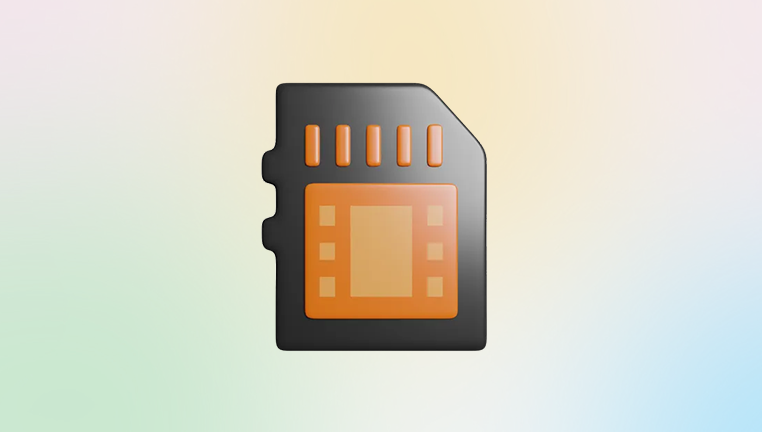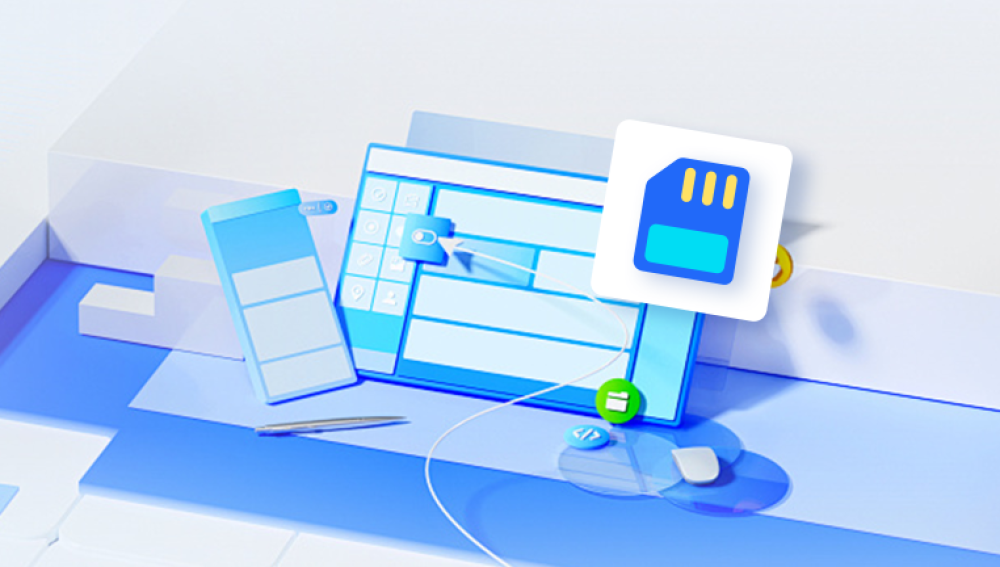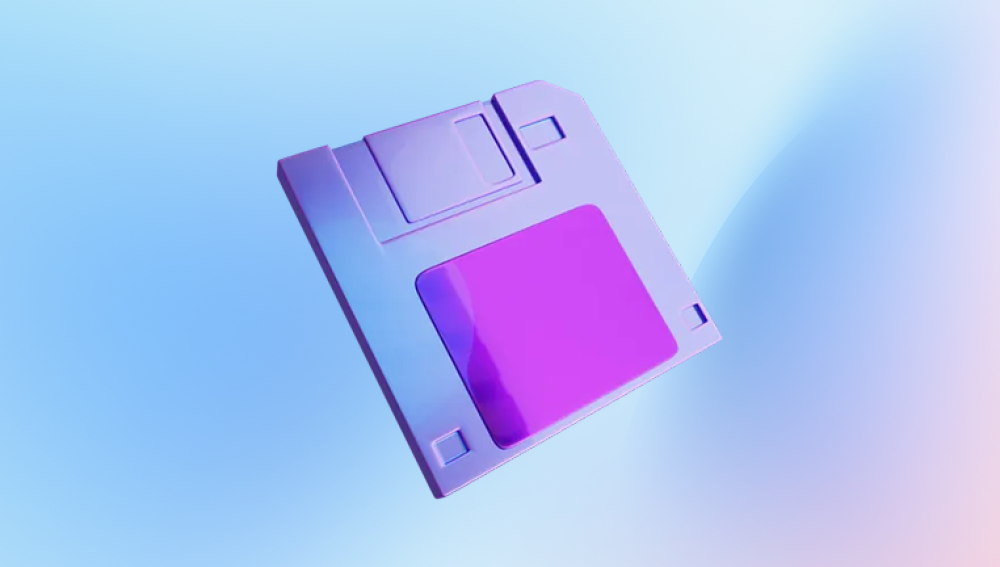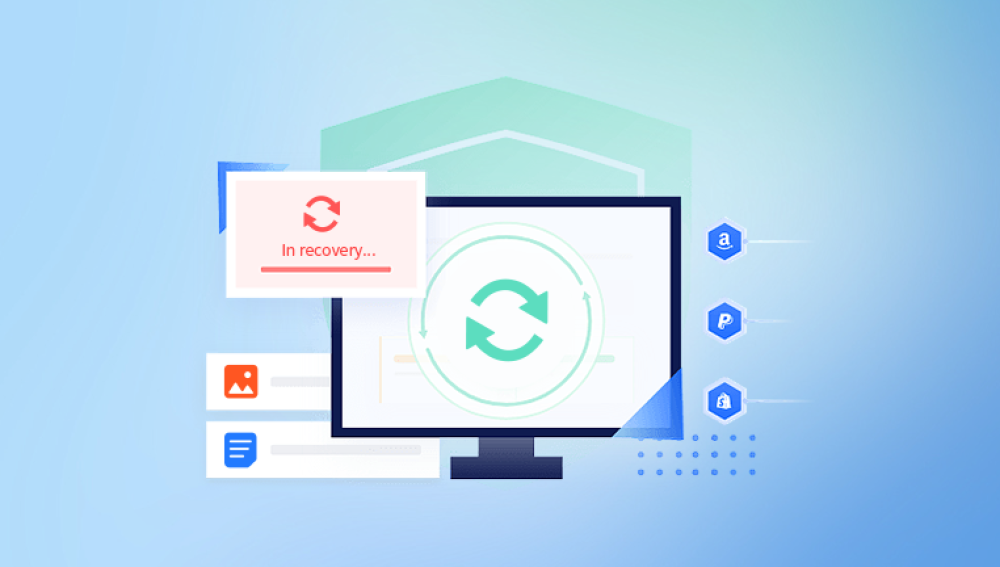Memory cards are indispensable in the digital age. From photographers capturing life's most meaningful moments to students storing assignments or travelers recording their adventures, memory cards have become essential for portable data storage. They are used in smartphones, cameras, drones, dash cams, gaming consoles, tablets, and even smart devices like GPS units.
Despite their convenience, memory cards are vulnerable to data loss due to accidental deletion, formatting errors, file system corruption, virus attacks, and physical damage. Losing important photos, videos, or documents can be frustrating but thankfully, you may be able to recover your data using free memory card recovery tools.

Memory card data loss can occur for various reasons, some preventable, others unavoidable. The most common causes include:
Accidental deletion: Files are mistakenly erased during use or during a cleanup operation.
Formatting errors: Memory cards may be formatted unintentionally or prompt formatting due to corruption.
Virus/malware attacks: Infections can hide or delete data, making it appear lost.
File system corruption: Improper removal, power failures, or interrupted write operations can damage the card's file system.
Physical damage: Exposure to water, extreme temperatures, or physical impact can lead to read errors or complete failure.
Knowing the cause of the data loss is the first step toward choosing the right recovery solution.
How Memory Card Recovery Tools Work
When you delete files from a memory card or format it, the files aren't necessarily destroyed immediately. The system simply marks the space they occupied as available for new data. Until that space is overwritten, the data can often be recovered.
Drecov Data Recovery
Drecov Data Recovery Free is a powerful, user-friendly tool designed to help users recover lost or deleted files from memory cards quickly and efficiently. Whether your files were accidentally deleted, lost due to formatting, or disappeared after a system crash, Drecov Data Recovery offers a reliable solution for restoring your data without the need for technical expertise.
With support for a wide range of memory card types including SD, microSD, SDHC, SDXC, CF, and memory sticks Drecov Data Recovery is ideal for recovering photos, videos, documents, and audio files from digital cameras, smartphones, tablets, and other devices. Its advanced scanning technology allows the software to deeply analyze your memory card, detect lost files, and restore them with a high success rate.
The clean and intuitive interface ensures a smooth recovery process. Users simply connect their memory card to a computer, launch the program, select the target drive, and initiate the scan. Within minutes, Drecov Data Recovery presents a list of recoverable files, allowing users to preview and selectively restore what they need.
Best of all, the free version of Drecov Data Recovery allows users to recover a limited amount of data at no cost, making it perfect for quick recovery jobs or testing before upgrading to the full version. Whether you're dealing with accidental deletion or unexpected corruption, Drecov Data Recovery Free provides peace of mind and a reliable way to retrieve your valuable files.
Recuva
Developed by Piriform, Recuva is one of the most user-friendly recovery tools. It supports a wide range of file types and allows recovery from memory cards, USB drives, external hard disks, and other storage media.
Key Features:
Quick and deep scan modes
Easy-to-use wizard interface
Supports image, video, document, and email recovery
Secure deletion for unrecoverable files
Portable version available (no installation required)
Ideal for: Beginners needing quick and straightforward recovery.
PhotoRec
PhotoRec is a powerful, open-source recovery tool developed by CGSecurity. Despite its name, it recovers much more than just photos—supporting over 400 file types.
Key Features:
Command-line interface (with optional GUI version: QPhotoRec)
Works on formatted, corrupted, and RAW drives
Cross-platform: runs on Windows, macOS, and Linux
Bypasses file system structures, making it effective for damaged cards
Ideal for: Advanced users or those dealing with severe data loss.
TestDisk
Often bundled with PhotoRec, TestDisk focuses on partition repair and recovery rather than individual files. However, it can restore lost partitions on memory cards and fix boot sectors.
Key Features:
Recovers deleted or lost partitions
Repairs partition tables and file systems
Works on SD cards, microSD, USB drives, and hard disks
Fully open-source and cross-platform
Ideal for: Technically skilled users needing partition-level recovery.
EaseUS Data Recovery Wizard (Free Version)
EaseUS provides a well-designed, beginner-friendly interface with good recovery rates. The free version allows up to 2GB of data recovery.
Key Features:
Simple UI with preview functionality
Supports photos, videos, documents, and more
Two scan modes: quick and deep
Compatible with most file systems and storage types
Ideal for: Users who need to recover a small amount of data easily.
Disk Drill (Free Version)
Disk Drill is sleek and professional. On Windows, it allows up to 500MB of free recovery. On macOS, the free version allows scanning and preview, but saving recovered files requires payment.
Key Features:
Graphical interface with modern design
Recovers data from memory cards, USBs, and drives
Built-in tools like data protection and disk monitoring
Supports more than 400 file formats
Ideal for: Users looking for a polished recovery experience on Windows.
MiniTool Power Data Recovery (Free Edition)
MiniTool's free edition offers 1GB of data recovery and is known for its reliable performance and straightforward layout.
Key Features:
Clear file categorization and preview options
Supports recovering from damaged or inaccessible cards
Specialized scan options based on data loss scenario
Ideal for: Users needing to recover common file types within a 1GB limit.
iCare Data Recovery Free
iCare provides a completely free tool (not a trial) that allows file recovery from deleted, lost, or formatted memory cards.
Key Features:
Fully functional free version
Recovers images, videos, documents, and audio
Simple and clear interface
Ideal for: Users who want truly unlimited free recovery without needing advanced features.
Puran File Recovery
Puran is another lesser-known yet effective recovery program that supports multiple scan types and over 50 file formats.
Key Features:
Free for personal and commercial use
Deep scan and full scan available
Simple, no-frills interface
Ideal for: Windows users who want a straightforward, no-cost solution.
How to Use a Free Memory Card Recovery Tool
Although each software has its own interface, the basic recovery process is similar:
Stop using the card immediately. Continued use can overwrite recoverable data.
Insert the memory card into a card reader and connect it to your computer.
Launch the recovery tool and select your memory card from the list of available drives.
Choose the scan mode: Quick for recently deleted files; Deep for formatted or corrupted cards.
Let the software scan your memory card. This can take from a few minutes to several hours.
Preview the results. Most tools allow you to see files before recovering them.
Select the files you want to recover and save them to a different drive—never to the memory card itself.
Best Practices for Successful Recovery
To ensure the highest chances of retrieving your lost data, follow these best practices:
Act Quickly
Time is critical. The longer you wait, the higher the risk that new data will overwrite the deleted files. Stop using the memory card immediately after noticing data loss.
Avoid Saving to the Same Card
Never save recovered files back to the original memory card. Doing so may overwrite additional files you haven’t recovered yet. Use your computer’s hard drive or an external storage device.
Use a Reliable Card Reader
A poor-quality card reader can interrupt the recovery process or fail to detect the memory card properly. Always use a trusted, high-quality reader.
Run Deep Scans
Quick scans are fast but may miss deeply buried or fragmented files. If the quick scan doesn’t work, opt for a deep scan even if it takes longer.
Don’t Interrupt the Process
Let the scanning and recovery process finish completely. Interruptions may corrupt recovered files or require restarting the scan from scratch.
Save Recovery Logs
Some tools allow you to save logs or recovery sessions. This can be helpful if you need to resume recovery later.
When Free Tools Aren’t Enough
Although free recovery tools are surprisingly powerful, they have limits. If your memory card is physically damaged, completely unreadable, or your data is highly valuable (e.g., legal documents, wedding footage), consider professional help.
Signs that you may need expert data recovery services include:
The card is not detected at all
Unusual noises or overheating
Repeated error messages or failed scans
Extremely slow performance or freezing
Professional services can often recover data from physically damaged or inaccessible memory cards using specialized hardware and cleanroom environments. While these services are not free, they may be your only option in critical situations.
Preventing Future Data Loss
While memory card recovery software is useful, the best solution is prevention. Here are some tips to protect your data:
Back Up Regularly
Create multiple backups of your data. Use cloud storage, external drives, or automated backup tools to ensure copies exist even if your memory card fails.
Format Cards Properly
Always format memory cards in the device where you plan to use them. Avoid formatting in your computer unless recommended.
Eject Cards Safely
Don’t remove memory cards while files are being written or read. Use the “safely eject” or “unmount” option to avoid file system corruption.
Avoid Mixing Devices
Using the same memory card across multiple devices can increase the risk of corruption. If possible, dedicate a card to a single device.
Use High-Quality Cards
Invest in memory cards from reputable brands like SanDisk, Samsung, Lexar, or Kingston. Cheap or counterfeit cards are more likely to fail.
Monitor Card Health
Some software tools offer card health monitoring. If a card shows signs of decline (e.g., slow speed, read errors), retire it early.
Memory card data loss is an unfortunate but common event in today’s technology-driven world. Whether it's photos from your vacation, crucial work documents, or videos of once-in-a-lifetime moments, losing data can be heartbreaking.
Thankfully, a wide range of free memory card recovery tools are available to help restore lost files. From user-friendly options like Recuva and EaseUS to powerful open-source solutions like PhotoRec and TestDisk, there’s something for every need and technical level.
Acting quickly, avoiding further card use, and choosing the right tool are key to successful recovery. And once your files are safely back, consider setting up regular backups and safe handling habits to prevent future loss.




